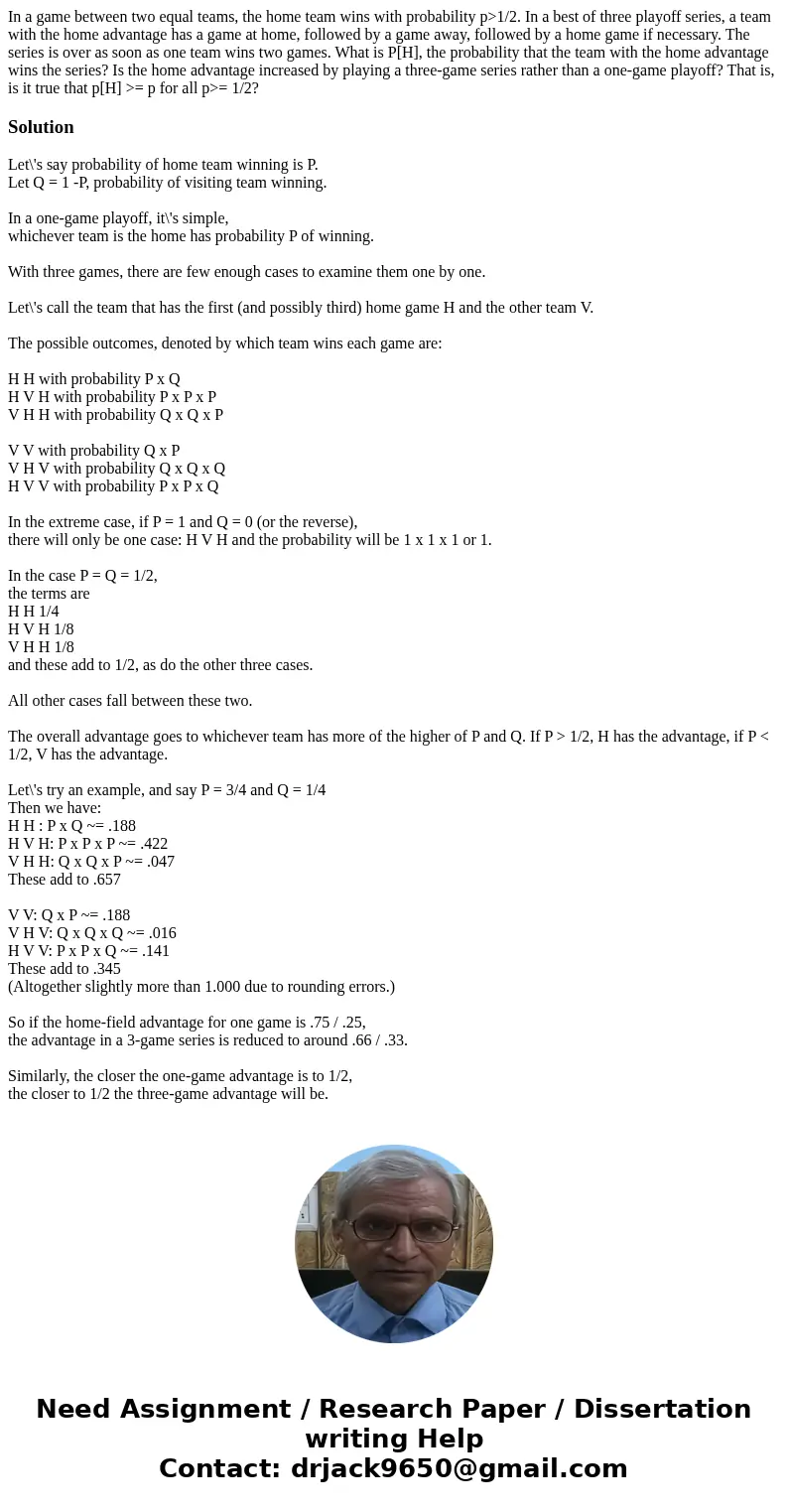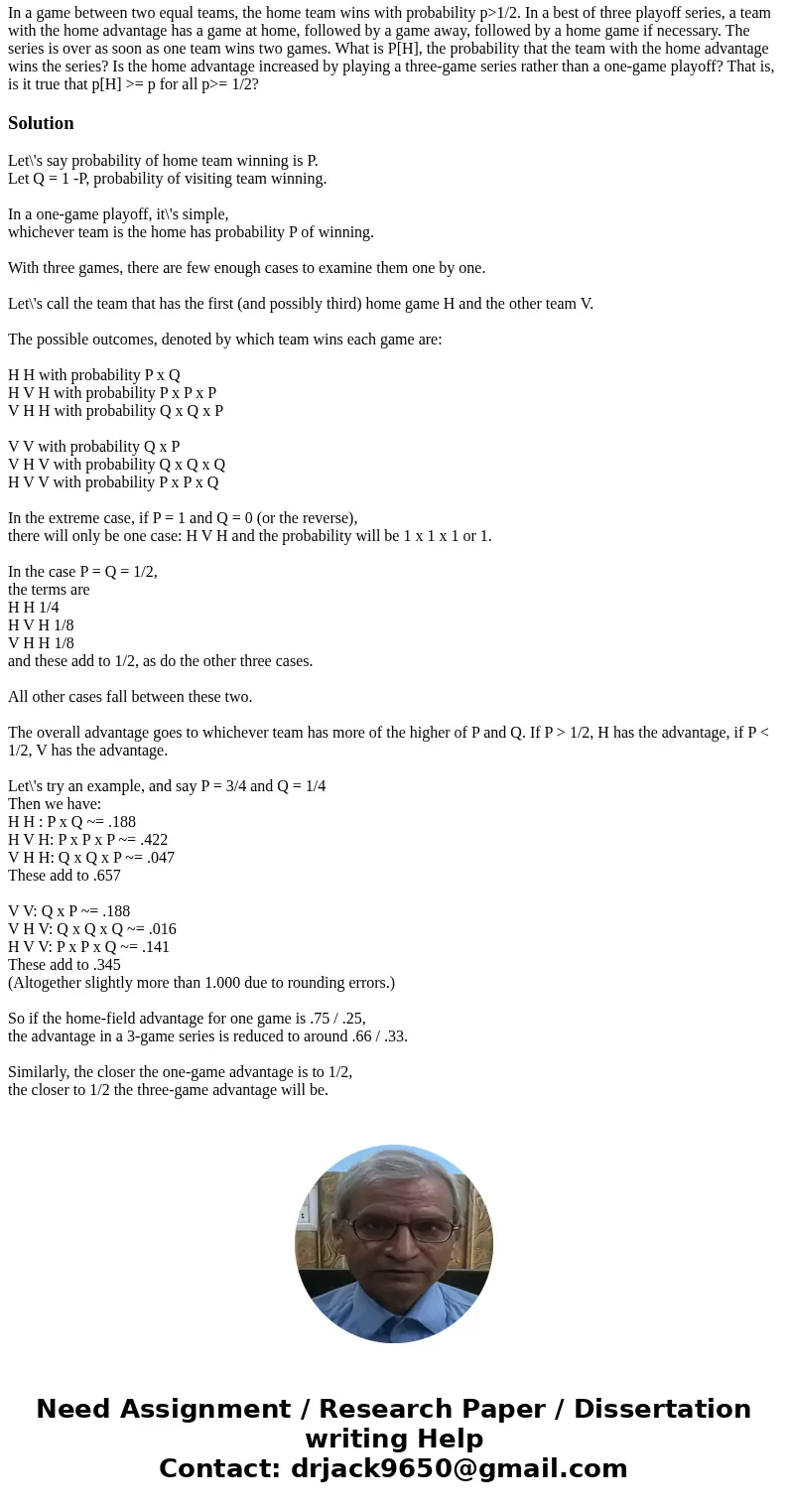In a game between two equal teams the home team wins with pr
In a game between two equal teams, the home team wins with probability p>1/2. In a best of three playoff series, a team with the home advantage has a game at home, followed by a game away, followed by a home game if necessary. The series is over as soon as one team wins two games. What is P[H], the probability that the team with the home advantage wins the series? Is the home advantage increased by playing a three-game series rather than a one-game playoff? That is, is it true that p[H] >= p for all p>= 1/2?
Solution
Let\'s say probability of home team winning is P.
Let Q = 1 -P, probability of visiting team winning.
In a one-game playoff, it\'s simple,
whichever team is the home has probability P of winning.
With three games, there are few enough cases to examine them one by one.
Let\'s call the team that has the first (and possibly third) home game H and the other team V.
The possible outcomes, denoted by which team wins each game are:
H H with probability P x Q
H V H with probability P x P x P
V H H with probability Q x Q x P
V V with probability Q x P
V H V with probability Q x Q x Q
H V V with probability P x P x Q
In the extreme case, if P = 1 and Q = 0 (or the reverse),
there will only be one case: H V H and the probability will be 1 x 1 x 1 or 1.
In the case P = Q = 1/2,
the terms are
H H 1/4
H V H 1/8
V H H 1/8
and these add to 1/2, as do the other three cases.
All other cases fall between these two.
The overall advantage goes to whichever team has more of the higher of P and Q. If P > 1/2, H has the advantage, if P < 1/2, V has the advantage.
Let\'s try an example, and say P = 3/4 and Q = 1/4
Then we have:
H H : P x Q ~= .188
H V H: P x P x P ~= .422
V H H: Q x Q x P ~= .047
These add to .657
V V: Q x P ~= .188
V H V: Q x Q x Q ~= .016
H V V: P x P x Q ~= .141
These add to .345
(Altogether slightly more than 1.000 due to rounding errors.)
So if the home-field advantage for one game is .75 / .25,
the advantage in a 3-game series is reduced to around .66 / .33.
Similarly, the closer the one-game advantage is to 1/2,
the closer to 1/2 the three-game advantage will be.


 Homework Sourse
Homework Sourse